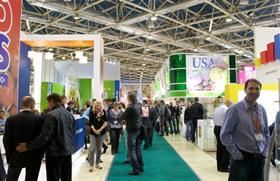
ITE Group, the organisers of the annual World Food Moscow exhibition, have made a statement about the impact of the political standoffs between Russia and its various trading partners.
“Usually, entering a market of Russia’s size and potential means competition to get your products on the shelves is fierce, but geopolitics have dramatically altered the landscape,” the group stated.
In the summer of 2014, Russia banned food imports from the EU, the US and some other countries, while this year saw Turkey added to the blacklist, leading to shortages of certain items in Russia and consequent price rises.
Despite the Russian authorities’ stated desire to boost national production of fresh produce in order to reduce the country’s reliance on imports, new suppliers have been vital in plugging the gaps.
“One country to fill this gap is Pakistan, which since the ban has grown exports to Russia by 1,400 per cent,” ITE stated. “Serbia’s exports to Russia grew 66 per cent, and Egypt now supplies 11.4 per cent of all Russia’s food imports as of May 2015. Latin American exporters have also been getting involved.”
The group stressed the continuing potential for alternative suppliers. “The year before the bans were introduced, Russia spent US$25.2bn on food imports in the categories affected,” ITE said. “With sanctions reconfirmed this autumn for at least another year, there are still opportunities for new suppliers in new markets to get a slice of this spending.”
The next edition of World Food Moscow takes place at the Moscow Expocentre on 12-15 September 2016.



